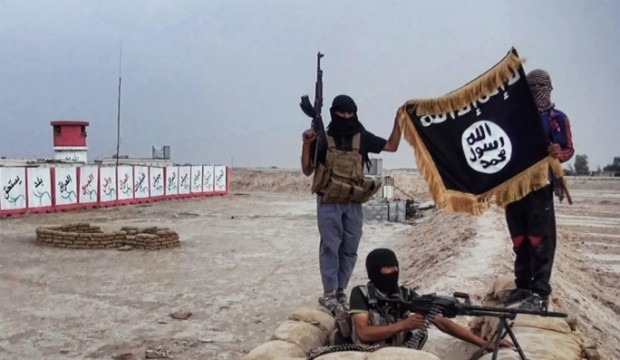IS growth worries the U.S., yet no near military action on the horizon

Reuters
The United States and its allies are probably many weeks or even months away from launching a new military campaign against Islamic State in Libya, despite mounting concern about the group’s spread there and its attacks on oil infrastructure, U.S. officials say.
The Pentagon has warned in recent weeks of the dangers posed by Islamic State’s growth in Libya. The U.S. is developing military options, which were discussed at an inconclusive meeting last week of President Barack Obama and his top security aides, officials said.
Those options include increased air strikes, deploying U.S. special operations forces and training Libyan security forces, officials say.
But the U.S. officials, who spoke on condition of anonymity, said enormous hurdles stand in the way of increased American military involvement. The largest is the formation of a unified Libyan government strong enough to call for and accommodate foreign military assistance.
Getting some allies on board could also require a new mandate from the United Nations, they said.
“We’re not there yet,” said one U.S. official. He and other officials with knowledge of internal deliberations cautioned that it is too soon to estimate when military action might begin, but cautioned it could take many weeks or even months.
“As far as I’m aware, there is no clear intention to go ahead with the military-style action. There is a lot of thinking, a lot of thinking, a lot of planning,” said a Western diplomat.
U.S. and European officials describe Islamic State’s presence in Libya as increasingly worrisome, although not on the scale of its rule over swaths of Iraq and Syria.
Islamic State forces have attacked Libya’s oil infrastructure and taken control of the city of Sirte, exploiting a power vacuum in the North African country where two rival governments have been battling for supremacy.
Estimates of Islamic State fighters in Libya range from 3,000 to 5,000-6,000. Officials openly worry that the group could use its Libya haven to relieve the pressure from U.S. air strikes and local forces against its home base in Iraq and Syria.
POLITICAL FOCUS FOR NOW
Under a U.N.-backed plan for a political transition, Libya’s two warring administrations are expected to form a unity government, but more than a month after the deal was agreed in Morocco, its implementation has been dogged by infighting.
Ben Fishman, a former White House aide under Obama who dealt with Libya policy, said there is concern in the Obama administration that military action now could disrupt the government formation process. It might, he said, prompt moderate forces in Libya to back away.
Gen. Joseph Dunford, chairman of the U.S. Joint Chief of Staff, appeared to reference those concerns last month.
“You want to take decisive military action to check ISIL’s expansion and at the same time you want to do it such a way that’s supportive of a long-term political process,” he said.
Still, Fishman said, “I think we have to do something on the ground soon, because they (Islamic State) are pretty much acting with impunity.”
Forming a unified Libyan government could pave the way toward Tripoli formally requesting greater international assistance.
But with Libya in chaos, it would likely take a new government some time to get on its feet, officials said,
U.S. Defense Secretary Ash Carter said this week that the focus of the international community on Libya is political, not military.
Once a government is in place, “we have indicated a willingness, along with a number of other countries, to help them secure the country,” Carter said. He noted that “the Italians have indicated that they would take the lead in that, rather than the United States, which is fine with us.”
The U.S. military has been laying the groundwork for greater action, sending U.S. special forces into Libya to establish contact with local armed groups to get a better picture of who the international community might be able to work with.
U.S. officials also say the amount of intelligence collection about Islamic State’s activities in Libya has also increased in recent weeks.
They also have not ruled out more precision strikes against top Islamic State leaders like one in November in which American F-15 aircraft killed Islamic State’s senior leader in Libya, known as Abu Nabil.
How to submit an Op-Ed: Libyan Express accepts opinion articles on a wide range of topics. Submissions may be sent to oped@libyanexpress.com. Please include ‘Op-Ed’ in the subject line.
- Can Haftar give Russia what Assad couldn’t? - January 12, 2025
- Aguila Stakes Future on Bold Peace Initiative - January 12, 2025
- SSA seizes major drug haul, arrests Libyan suspect - January 12, 2025


